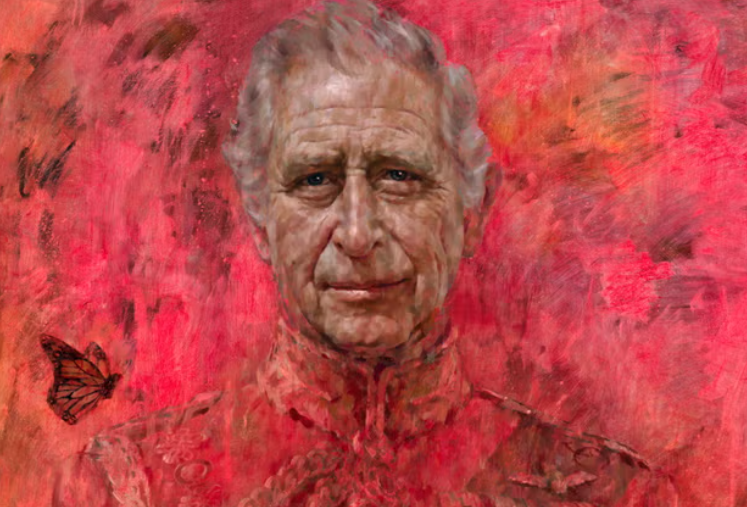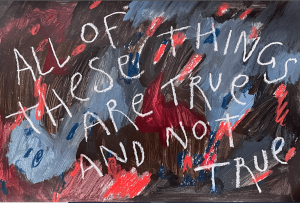The unspoken debt: Starmer’s missed chance on reparations
by Noam Sala Budgen | November 15, 2024

Ambling about at his first Commonwealth banquet, an awkward Keir Starmer clutches his glass of bubbly, radiating his bare-boned exuberance that leaves him as isolated as the island on which they stand—Samoa, adrift in the Pacific. As both guest and intruder, the newly minted, progressive, British PM was maybe expected to shoulder some weight of the past, even wading into some of those deep, bloody waters where the scars of history still churn. Yet, his hands remain tightly wrapped around his glass, the golden beads shimmering with echoes of ancestral torment, not even offering a token of regret – instead a conspiracy of silence as the calls for reparations grow louder around him.
Whilst trying to divert the pleas of Commonwealth leaders to the “current future-facing challenges”, Keir Starmer once again shows his humdrum attempt at leadership. To simply ignore the past, and avoid the apparent “very long endless discussions about reparations”, hardly casts him as the leader of Labour’s stirring movement of Change. If he insists on ramming this slogan of Change down the throats of the British public, I would venture to say he might have to engage with Britain’s colonial history. Instead, he reveals himself as this cloddish politician eager to bury the past, turning his back on progress while claiming to move forward.
A report published last year by the University of The West Indies, and backed by ICJ judge Patrick Robinson, says the UK owes £18 trillion for its role in the slave trade to 14 Caribbean countries. As Robinson stated, “these high figures, as high as they appear to be, reflect an underestimation of the reality of the damage caused by transatlantic chattel slavery.”. The Brattle Group report meticulously unveils the brutality of the Trans-Atlantic slave trade: lives stolen, labour exploited without a cent of compensation, liberty stripped away, bodies scarred, minds tormented, and gender-based violence inflicted without mercy. One of the report’s most haunting statistics is this: “slave owners and other white men sexually assaulted at least 58% of all enslaved women aged 15–30 years.” These are losses beyond repair, a legacy that can’t be undone. Reparations are the very least we owe. £18 trillion isn’t a number these countries have pulled out of thin air, it is a reasonable and evidenced amount. The importance of this issue is paramount.
Now to the liberal Waterstones dads shouting through the screen right now, I know Keir Starmer is in no financial position to pull out £18 trillion pounds. As he rightly points out, the UK faces “real challenges on things like climate in the here and now.”. But that’s no get-out-of-jail-free card on reparations; if we treated every major expense this way, we’d never invest in anything meaningful. The UK government has yet to even issue a formal apology, let alone take steps to work with Commonwealth countries toward meaningful justice. True action could mean launching projects that address climate and reparations side by side. Too often, those in power want us to compartmentalise these issues, as if they aren’t intricately interwoven. Ignoring reparations is to disregard history and humanity alike. Next time you’re in Waterstones, maybe skip Niall Ferguson’s Empire-apologia and pick up The Brattle Group report instead!
It must be said the discourse surrounding British identity and legacy has become ever more toxic and vile, creating a media landscape that is exceedingly difficult to navigate. But my question to Keir: are the rabid headlines on GB News really the snag standing between your government and an apology for one of the most heinous crimes in human history? Looking forward is impossible until the scars of the past are properly healed. So why should he get to roll up his freebie shirt sleeves and look to the future without addressing what’s beneath?
Now, if we pause from the Keir-bashing chorus for just a moment, don’t worry we will continue, let’s consider the Commonwealth’s stance on reparatory justice. They’ve made it clear: “the time has come for a meaningful, truthful, and respectful conversation towards forging a common future based on equity.” Britain, they add, must “prioritise and facilitate further research on the transatlantic trade in enslaved Africans and chattel slavery” to further these conversations and help chart a way forward.
Now, call me a woke, but that’s hardly a radical demand. A PM remotely interested in human rights shouldn’t be trying to sweep such a call for justice under the already bulging rug of colonialism painted red, white and blue.
Even the archaic, decaying Anglican Church has beaten Keir to it, reforming its stance on its involvement in the Trans-Atlantic slave trade this year by turning a £100m commitment into plans for a £1bn fund to address the legacy of slavery. It’s utterly bizarre that a former human rights lawyer, paired with a foreign secretary who has repeatedly scathingly condemned imperialism for enslaving his ancestors, now want to forge ahead and leave the ensanguined colonial past behind—without even offering a few words of regret. Have the roots of the benches to the right of the Speaker already crept up, binding this government’s leaders in a paralysis of inaction?
As John McDonnell told the Independent, it is disconcerting that Starmer and his entourage have echoed the same rhetoric as the Conservatives regarding reparations. This hardly feels like change. To stumble over Britain’s colonial history while attending a Commonwealth banquet is both surreal and disturbing. Reparations for Britain’s role in the slave trade shouldn’t be a question or a hurdle; instead, they should be seen as an opportunity to heal and address a truly abhorrent colonial legacy.
Keir’s glass of bubbly should have been raised, not just in a cavalier toast, but as a solemn gesture heavy with historical weight—pouring forth the acknowledgment that true justice only flows when that glass brims with the reparations owed to those whose ancestors were denied their rightful share.
Keir’s so-called Change feels like a rudderless drift, missing every mark with the British public. It’s no wonder, given the sea of complacency around him, all those red ties nodding along. The party has strayed so far from Corbynism that it’s morphing into exactly what it once vowed to fight. What’s next? Will Starmer defend a country’s right to cut off water and electricity to a whole people? Promise Britain a new era of austerity? Maybe he’ll even start hailing right-wing icons like Margaret Thatcher! Ah…
The Commonwealth banquet was the perfect stage for our PM to rise above the ruthless games of Westminster, to bring compassion and real solutions to the injustices of our past. Instead, we saw the same spineless, lacklustre, and frankly dangerous politics that Keir Starmer and his party embody. I’m not asking for socialism—that’s another article entirely—but this Labour Party feels hollow, void of any true progressive vision. These inactions play straight into the hands of politicians who’d drag us back 50 years and Starmer seems blind to the threat. If Labour can’t even muster an apology for Britain’s brutal colonial past, what will happen to any honest discourse when a dangerous right-wing force takes Westminster? Keir Starmer, you tell me.
Words by Noam Sala Budgen. Image Courtesy of the Independent via Flickr.




